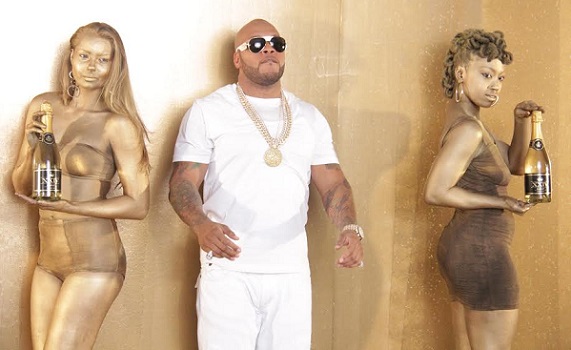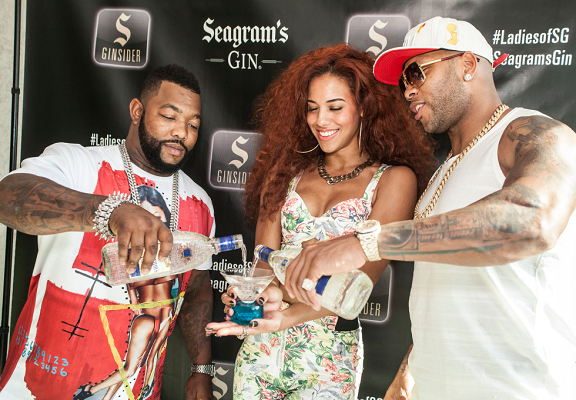Flo Rida recently won a $82.6 million dollar lawsuit against energy drink company Celsius. Celsius brought on Flo Rida as a brand ambassador in 2014, and compensated him with an up-front fee along with equity in the company (based on milestones being reached). The deal was put together by the late Marlo Gold, who passed away a few years back. I had the honor of interviewing her on how businesses should approach celebrity endorsements.
Here is the interview:
It’s not just about celebrity endorsements anymore, but brand ambassadors and partners who can empower short-term and long-term success.
Marlo Gold is the CEO of D3M Licensing Group, which provides end-to-end solutions for brands and talent. Her clients include celebrities like Grammy nominated artist Flo Rida and Natalie La Rose. Her philosophy is a 360-degree approach to licensing and endorsements that offer clients support through every state of brand extension.
Endorsements vs Licensing
Some people get a little confused about the difference between an endorsement and licensing. Marlo has a definite idea about how the relationship between the celebrity and the brand can define a path to strategy and tactics.
“[An] Endorsement is basically a testimonial type of a strategy. Licensing leads to a brand ambassadorship and is much larger agreement where the celebrity’s image is integrated with the ad story line. The product and the celebrity also have to be integrated with target market characteristics.”
Do your homework
Determining the relevance of a celebrity relative to the brand and its target market requires a bit of science and good dose of common sense.
“The main objective is to understand consumer perceptions of the celebrities. You also need to understand the potential effectiveness of the celebrity in this endorsement. There are two methods people use in the industry- one is the Q Score method. it’s a way to measure credibility, believability, popularity, and likeability of a celebrity based on quantitative measures.”
“Another is the FRED principle.
F is for familiarity. The target market must really be aware of the person, and perceive that person as empathetic, credible, sincere and trustworthy.
R is for relevance. It has got to be a meaningful link between the brand and the endorser, and more importantly between the endorser and the defined target market.
E is for esteem. Consumers must have a lot of respect and confidence for that celebrity or actor, athlete even.
And D is for differentiation. The target consumers will have to see the endorsers like a cut above the rest, like a USP.”
The celebrity/brand connection
The idea of a celebrity as a Unique Selling Proposition starts to define the potential power of a brand’s connection to a celebrity’s reputation and personality. Think of it in terms of brand essence.
Brand essence is essentially one word that defines a desired characteristic for a brand. If your product is a sports car with a brand essence defined by “speed” you might want to think about athletes who are uniquely known for having that ability and that reputation.
It’s really about defining relevance but also serves to support the other attributes of the FRED principle. But Marlo went on to add a third component that not only helps to identify the “brand-fit” with a celebrity, but a way to assess levels of endorsement and licensing.
“Impact. The impact would be both short term and long term, and sometimes what happens is you might start with the product placement, and then you can judge what the audience thinks about that placement.
From there maybe an endorsement might creep up. And if the endorsements are generating more “likes” in social media, and attention, then you might go to a brand ambassador setup.
The power of these endorsements are multiplied by the fact that we are in the age of social media, and one tweet with an attached link can drag thousands of consumers to a brand’s website, in a matter of minutes.”
How Small Businesses and Start-Ups Can Use Celebrities
Celebrities are often associated with larger brands, but they can have significant impact on new brands, startups and the efforts of small-business. If done properly, it can create immediate and positive brand awareness and relevant connection between the celebrity and the brand. Marlo put it this way:
“Endorsements achieve an eclectic balance between the brand and the celebrity. It’s a decision that if made correctly can change the future of the brand . And the celebrity has to love this product. Customers are smarter than anybody thinks, and the biggest mistake anybody could make is not paying attention to who the fans and the customers are.”
Pay Out vs Investment?
A common question for any business, especially small businesses and start-ups is how much will the celebrity endorsement cost. Unfortunately, there’s no such thing as a rate card. Celebrities and their value to a brand varies as much as Q scores and the competitive marketplace.
Ultimately, this is more a question of negotiation rather than a fixed cost.
“You never know- you can plan and plan and plan, but what really needs to happen here is trust between the companies and the trust between the celebrity.
We will often times, most times, take a lot less on the front end and ask for a piece of equity in a company.
We would rather do that, because what if the celebrity is not only the brand ambassador, but part owner of the company? Guess what happens-they are going to push it.
We want the celebrities to grow with the companies and quite honestly, if we are going to sign contracts, and create contracts and move forward we all want a little piece of what we are all building together.”
From short-term to long-term
The degree to which some companies will agree to partnerships or part ownership often varies depending on the size of the brand and the company policies and philosophies. However, this could result in a cost effective way to negotiate a deal especially for smaller companies who may not have the capital to afford a popular celebrity as a brand ambassador. As Marlo said, it also gives added motivation to the celebrity to promote and endorse the brand.
There are varying ways to structure these kinds of deals from a percentage of ownership, to a franchise or stock if the company is publicly traded.
While this sounds like an intriguing way for a company to engage a celebrity, there’s always that question of commitment from the celebrity if the brand or the business suffers a decline.
“I would be very upset if one of my clients just decided that they wanted to just give up, ok? We don’t want people stretching the limits of their budgets until they are broke just to sign a deal. it doesn’t move us to do that.
Plus it is just not cool. I mean this is how we feel about it, we want it to be successful on all ends. For everybody. If they don’t look good and the company doesn’t look good, nobody looks good.”
Measuring success
A big question that brands often have is how they can measure the ROI of a celebrity endorsement. Marlo has some basic ideas about measurement.
“Sales, number one, famous personalities generate higher appeal. And they’re messaging we can recall better than those executed by non-celebrities. So, you want quick reach, but you also want to stay relevant, constantly, throughout.
Also is a message getting through? Are people asking about it all the time, are people engaging on social media and is the engagement making it to the stores? To us, that’s success.”
The bottom line
A celebrity can bring added interest and dimension to a business and a brand. The critical thing is to approach it strategically, measure and manage tactics, and make sure the brand and celebrity have a logical fit and an emotional connection to the target market. Marlo added two more insights to ponder as well.
“Celebrities do just what celebrities want, that’s why they’re celebrities. But, they are also people and they understand that they might have to kind of change what they would take, and if they really love the product it could take a little bit more on the back-end if that was necessary -if they really believed in the product.
You would be pleasantly surprised if you could sit in some of these conversations and hear how they really do react.”
“It’s also important to think about long term instead of short term, and all parties negotiating a fair contract. I can’t emphasize that enough.”
That sounds fair and hopefully her experience has given you some good ideas about how to best manage celebrities and brands.






